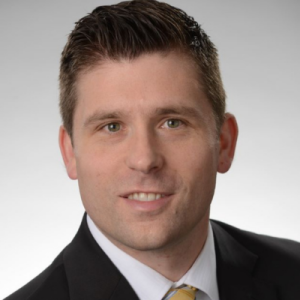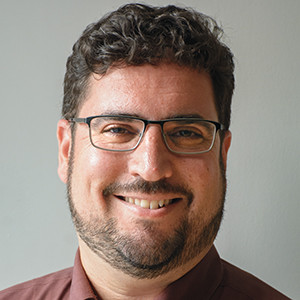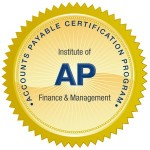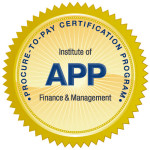
- Membership
- Certification
- Events
- Community
- About
- Help
Join Jess Scheer in conversation with Steve Fulmer in this live recording from the IOFM Fall Conference and Expo. Steve will share key insights from his popular session on preparing teams for transformative changes in AR processes, including automation.
In this episode, Steve emphasizes that change isn’t always easy - especially in AR, where even small shifts can feel significant. Drawing on his experience leading peer roundtables and facilitating team transformations, Steve reveals how to spot and address the resistance that may quietly exist within teams. He offers practical takeaways to help AR leaders support their staff through change, ensuring smoother transitions and more successful implementations.

Steve Fulmer
Steve is the Director of Digital Transformation at South Mill Mushroom LLC; he has over 20 years of Finance and Accounting experience. Steve is currently responsible for stabilizing, standardizing, and optimizing financial and accounting processes while maintaining data integrity.
Steve graduated from Widener University with a bachelor’s degree in accounting and completed an MBA with a concentration on organizational development. Steve began his career working for a Fortune 100 chemical company in a management rotational program where he held roles in tax, financial analysis, cost accounting, and various roles in corporate controllership.
Steve began his career at South Mill as Senior Accountant and then moved on to be the Accounting Manager in which he oversaw many aspects of the financial close while managing the Accounts Payable and Accounts Receivable Teams. In the process Steve earned an Accounts Receivable Manager Certification from the IOFM which he attributes to helping he and the team to improve the DSO and reduce employee turnover. Prior to becoming the Director of Digital Transformation, Steve was the Financial Controller for the US based operations.
Steve has completed intensive leadership training through a third party with a primary emphasis on team building and communication. In addition to his day-to-day responsibilities, Steve facilitates a variety of leadership training courses that South Mill now provides to their employees.
Steve’s passion is learning, teaching, and building high performing teams. Steve believes we should take time to celebrate the successes and laugh.

Jess Scheer
Jess is an award-winning business reporter focusing on financial operations. He has spent more than 25 years creating must-have content for professionals in the finance arena. He serves as Executive Editor of the Institute of Finance & Management (IOFM) and the Cash Management Leadership Institute (CMLI).
Grace Chlosta: Welcome to the IOFM podcast. This is a podcast for accounts payable and accounts receivable professionals who want to stay in the know with current AP and AR trends and ideas. We'll be interviewing professionals in this space on a wide variety of subjects, including automation, artificial intelligence, career growth, compliance, leadership, and much more.
Today we'll be interviewing Steve Fulmer. Steve is the Director of Digital Transformation at South Mill Mushroom, LLC. He has over 20 years of finance and accounting experience. He is currently responsible for stabilizing, standardizing, and optimizing financial and accounting processes while maintain data integrity.
Steve graduated from Widener University with a bachelor’s degree in accounting, and completed an MBA with a concentration on organizational development. Steve began his career working for a Fortune 100 chemical company in a management rotational program, where he held roles in tax, financial analysis, cost accounting, and various roles in corporate controllership.
00:01:07
Steve has completed intensive leadership training through a third party with a primary emphasis on team building and communication. In addition to his day-to-day responsibilities, Steve facilitates a variety of leadership training courses that South Mill now provides to their employees.
Steve’s passion is learning, teaching, and building high-performing teams. Steve believes we should take time to celebrate the successes and laugh. He'll be interviewed by IOFM own editor, Jess Scheer.
Jess Scheer: So we're here at IOFM Fall with Steve Fulmer, the Digital Transformation Director at the biggest mushroom producer in the universe.
00:01:42
Steve Fulmer: Maybe. On our way there.
Jess Scheer: You're getting there.
Steve Fulmer: Working on it.
Jess Scheer: You started as a controller.
Steve Fulmer: Yes.
Jess Scheer: Move into digital transformation.
Steve Fulmer: Correct.
Jess Scheer: So you understand both the finance side and the IT side. So how can AR professionals cultivate a proactive mindset to stay ahead of industry trends?
00:02:06
Steve Fulmer: Great question. AR's first and most important task, obviously, is safeguarding one of the most precious assets that a company has, which is the cash, right? But they can use different technologies to either – whether it's ChatGPT to draft emails to help with their collections. But at the end of the day, they still need to be able to pick up the phone and make a phone call. We still find in AR that the best way to collect when it's past due is a phone call.
Jess Scheer: Awesome. So what are the unique, human skills that will always be needed in AR? Is it the ability to communicate with a person?
Steve Fulmer: Yeah. So communication is obviously really important in this role. But I think having a little bit of a competitive nature is good for an AR person.
00:02:57
It's a finance role, but it's almost like the sales version of a finance role, so they need to be able to talk to people. They need to be a little competitive to try to drive their numbers, right? Organization, though, is another skill that's maybe a little overlooked, but they have to be organized so that they're chasing the right things and focusing their times on the right tasks.
Jess Scheer: So as the Digital Transformation Director, you're focused on the technology that can come to P2P and eventually over to cash. Tell me more about, with that on the horizon, what skills AR professionals need to really take advantage of that.
Steve Fulmer: Yeah, so I think when people hear "digital transformation," the first thing they obviously think of is technology. Digital is the first word, obviously, but there's a little more to digital transformation. I was talking to folks earlier today about automation, and if you automate bad processes, you're going to get a bad automation.
00:03:58
So I think one of the first things that we're doing before any technology is cleaning up process and procedures, right, making everything scalable. So if we open new locations, they can just get on board, take our processes and implement right from the ground up.
Jess Scheer: Absolutely. So full disclosure: I was a former process consultant in a prior life, spent about five years as process consultant, doing exactly what you're describing, which is cleaning up bad processes so that they can automate, because automation just makes bad worse, faster, at the end of the day.
Steve Fulmer: Yes, that's right.
Jess Scheer: What role does data analytics play in modern AR?
Steve Fulmer: It's huge, right? I think in your session today you had that slogan up there that says, "You can't manage what you can't measure," or you shouldn't manage what you're not measuring, right?
00:04:53
But everybody's measuring everything, right, whether it's DSO, past-due percentage. There's efficiency and effectiveness calculations. But there's all kinds of ways we can do this without technology, whether it's: How can we use Excel a little more and implement Power Pivot?
So if you have Microsoft products, there's Power Pivot and Power BI things. They all come with it. But using those – and if you don't have that, Google Sheets can do it. Microsoft OneNote. Just helping people stay organized, I think, is a real critical thing.
Jess Scheer: So, so important. Let's talk about what happens when people are able to automate more. It's not just about efficiency on the AR side. It's about improved customer service. It's about being able to do the more strategic things that you didn't have time to do.
00:05:53
Steve Fulmer: So more strategic relationships, right? How can AR start to add value to the organization? Can they team up with the sales team to help them? Can they get them more reports? Can they show them who's paying on time, paying early? Who's got a lot of room left on their credit limits to sell more to? We don't have to just be a team that's stuck in the corner upstairs, just crunching numbers, right? We can start building cross-functional relationships with the operations team or the sales team, or whatever it is that your AR teams can work with.
Jess Scheer: That's so crucial. We reward sales for selling, right, but the sale isn't done until AR gets the money, deposits it, and, I would argue, the client is ready to buy again. You can have such a bad experience paying the bill that you'll say, "I'll never do business with that company again," right?
00:06:51
In today's world, sometimes the only real human contact companies have with a supplier is that AR department, right? Everyone can use these EDI ordering processes, where it's essentially two computers that are talking back and forth to one another, and there's no people involved other than when an AR person may have to call and work with someone to get an invoice squared away, or something like that.
So the human element there is great. You're right. We have all of these fancy accounting words, like accruals and whatnot, and what constitutes a sale. But at the end of the day, if cash isn't coming in and AR's not closing the loop and getting the money in the bank, you can't last too long without the cash.
00:07:43
Jess Scheer: No, there's no cashflow.
Steve Fulmer: No cash flow.
Jess Scheer: So, finally, what advice do you have for AR professionals who want to stay relevant? There's so much changing right now.
Steve Fulmer: A lot's changing in the world with technology. I encourage everyone in my organization, and then those that I meet here in the sessions, [to] join the IOFM. I know this is going to sound a bit like a plug for the IOFM, but, really, stay in touch with the IOFM. Use their website. Listen to the webinars, even the free ones, right? They're really useful. You keep up with what's going on in the market, in the world, and in the business, right?
00:08:30
Jess Scheer: Let's switch gears and talk about the conference. Tell me what you learned so far at the conference.
Steve Fulmer: Learned a bunch of things already and we're not even through day one of the conference. Like I said, it does feel a little bit like day two. I was in a great session with you this morning and learned a new calculation for a metric for our AR department that I already have an email back and forth with the woman who got up and shouted that out.
00:09:01
That was one really good learning that we're going to implement. Well, about an hour ago, we've already implemented it.
Jess Scheer: That's awesome.
Steve Fulmer: But, yeah, I know I've talked to a bunch of people whose first time this was at a conference, and that's always exciting, right? You can see they're a little overwhelmed. We're finance and accounting people, so we're not the most social crowd, and there's about 1,000 people here, and it can be a little overwhelming. 400? It feels like 1,000.
Jess Scheer: It feels like 1,000. The rooms are packed.
Steve Fulmer: Yes. But it's been great. It's an opportunity to get to meet your peers. If you start coming to these conferences fairly regularly, you make what I call like conference friends, but they're also peers, right? You can learn from them. Like I said, I learned that new AR calculation today to measure how our teams are doing, and we're going to use that. That may pay for this whole conference.
00:10:00
Jess Scheer: So you're talking about DSO versus actual best possible –
Steve Fulmer: Yes.
Jess Scheer: Absolutely. That was a great insight.
Steve Fulmer: It takes the sales portion of that right out of the equation, so you get a true measurement of how your AR team is actually performing.
Jess Scheer: Fantastic. Would you recommend colleagues and your peers –
Steve Fulmer: A hundred percent. I've mentioned it to all my colleagues. I know in the spring we've already actually – because we were building the budgets out this month – budgeted to bring at least three of 'em. Yeah, obviously, anyone in the AR/AP/accounting space should be at these conferences. It's a great opportunity to see exactly what's going on in the industry. You hear what other companies are doing. You see all the vendors, with all of the technology that's available. It's a great three days.
00:11:03
Jess Scheer: Thank you very much, Steve.
Steve Fulmer: No problem.
Grace Chlosta: Thank you so much for listening to the IOFM podcast. Remember to head on over to the Member Forum to discuss today's episode and provide ideas for our next one. And to stay up to date on IOFM's current events, both in-person and virtually, head on over to IOFM.com.
Continuing Education Credits available:
Receive 1 CEU per hour of listening time towards IOFM programs:

 Receive 1 CEU per hour of listening time towards maintaining any AP and P2P related program through IOFM! These programs are designed to establish standards for the profession and recognize accounts payable and procure-to-pay professionals who, by possessing related work experience and passing a comprehensive exam, have met stringent requirements for mastering the financial operations body of knowledge.
Receive 1 CEU per hour of listening time towards maintaining any AP and P2P related program through IOFM! These programs are designed to establish standards for the profession and recognize accounts payable and procure-to-pay professionals who, by possessing related work experience and passing a comprehensive exam, have met stringent requirements for mastering the financial operations body of knowledge.
Continuing Education Credits available:
Receive 1 CEU per hour of listening time towards IOFM programs:

 Receive 1 CEU per hour of listening time towards maintaining any AP and P2P related program through IOFM! These programs are designed to establish standards for the profession and recognize accounts payable and procure-to-pay professionals who, by possessing related work experience and passing a comprehensive exam, have met stringent requirements for mastering the financial operations body of knowledge.
Receive 1 CEU per hour of listening time towards maintaining any AP and P2P related program through IOFM! These programs are designed to establish standards for the profession and recognize accounts payable and procure-to-pay professionals who, by possessing related work experience and passing a comprehensive exam, have met stringent requirements for mastering the financial operations body of knowledge.
What are you waiting for?
